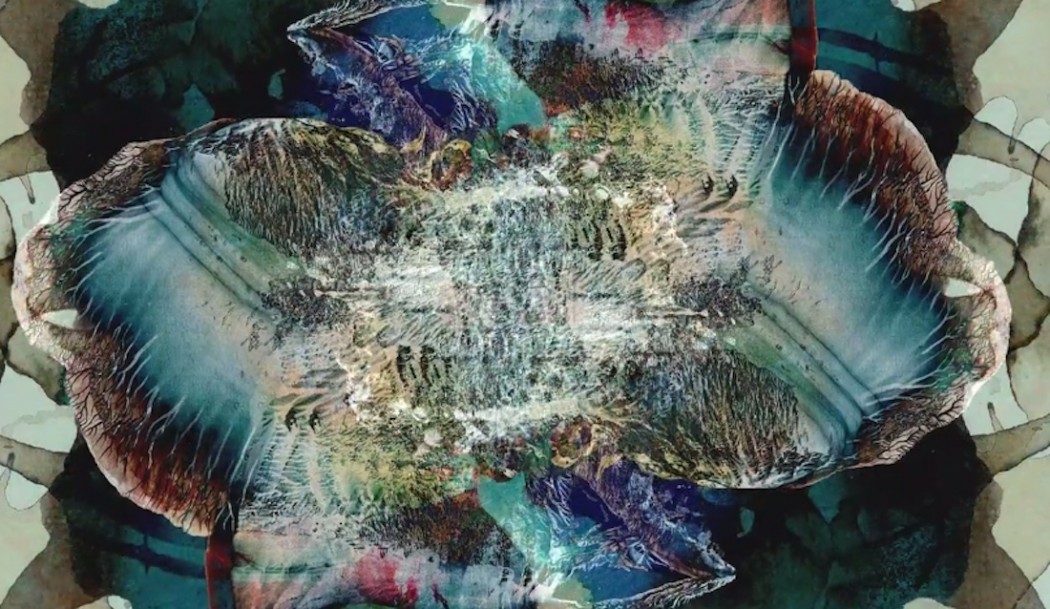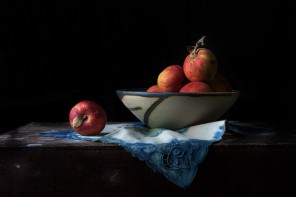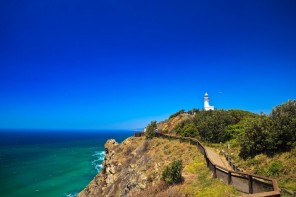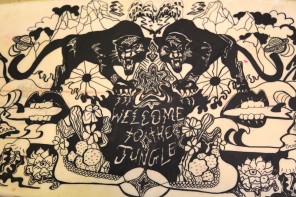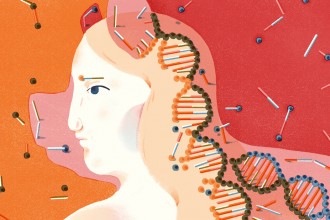Cutting edge filmmaker Marie Craven grew up on a cattle station in Deniliquin – not the most obvious of backgrounds for a technological wizard, writes Candida Baker.
When film director Marie Craven moved up from her very inner-city life in Melbourne to the Gold Coast in 2002, it was a bit of a mid-life crisis for her. “I always had an odd relationship with Melbourne,” she explains to me over a coffee in the coastal town of Palm Beach where she’s now living. “Artistically it was brilliant for me, but even though I had really walked away from background in the country it was such a primal place that I think that part of me always craved to be back in big space, if you like, where you can see the skies and the horizon,” she says. “Living within close distance of Mt Warning, the ocean scapes and the hinterland of the Gold Coast, I get that space, and for me it’s been a good compromise.”
The filmmaker who has really carved out a niche for herself with her experimental videos where she works in collaboration with poets, writers, musicians, and others to create miniature works of art, first started her experimental career, long before the age of technology, as a student in Melbourne.
“I originally wanted to be an actor,” she says. “I started in the theatre when I was only 15, but then unfortunately I was diagnosed with Chrone’s disease when I was 18, which can virtually destroy your immune system and to be an actor you have to have physical and emotional resilience and I simply wasn’t strong enough, so I began to pick up media studies, and it wasn’t long before I was making short Super8 film.”
Melbourne’s grungy inner-city life quickly brought out the avant-garde in the country girl, and studying with filmmaking legend Arthur Cantrill, AM, further cemented her desire to make experimental films. “Film was my whole life,” she says. “I even married one of my teachers, Adrian Martin, who was a film critic for The Age, and I really plunged into the world of the Super8 experimental film. I worked in every way that you can on films, but one of the things I was very interested in was narrative form, which is not normally an experimental filmmaker’s interest. I tried to combine narrative form into my films, with quite a degree of success.”
That success included getting funding for three short films that did very well on the international circuit, and with her career taking off Marie chose not to finish her degree but supported her film-making habit through teaching and assessments.
But unfortunately for Marie, her Crohn’s Disease – which causes very painful inflammation of the intestines – kept flaring up in the hotbed atmosphere of city life, and so she decided to make a lifestyle change and head north.
Life many of us, Marie found that work for creatives was in short supply and had to set about reinventing herself in order to make a living. “I found myself branching out into all sorts of things,” she recalls. “I entered a short film in the Currumbin Film Festival, I set up my own short screenwriting course at Kingscliff TAFE, and I started doing teaching work at Bond University. I had to work very hard to earn a living – I was even doing data entry for some lawyers in Brisbane, and at the same time I was starting to do the occasional video project. Because I’d always been a director I’d never been really hands-on with the computer, but as I learned more about it, I started doing some quite wild experiments with what you could do, which really took off in about 2007.”
One thing led to another, and Marie soon also found herself immersed in a whole new world in which working on the internet with people around the world offered her a way of combining all her film and dramatic interests with extra layers of music, vocals and experimental video techniques. “I partnered with a musician from Cardiff, Paul Foster,” she says. “We started a project called Cwtch, which is a Welsh word meaning hug, or safe place, and we’ve now been working together for some years, creating music and video collaborations.”
I first discovered Marie’s work after she had put a poem by a mutual friend – poet Amanda Stewart – to music. Often Marie is inspired to work on spec, and hope that the people whose work she’s adapting enjoy it. “I love the process of making these videos anyway,” she says, “and when I present them to people they seem to really appreciate them.”
Our introduction led in fact, to our own collaboration of videos she created to two of my poems, which in turn led to an invitation for both of us to work on an international poetry project with well-known UK video and poetry collaborators Helen Dewbery and Chaucer Cameron (elephantsfootprint.com) which will be released in the next year.
Poem: Kim Mannix makesmesodigress.com Music: Adi Carter soundcloud.com/adicarter
Images: Flickr Creative Commons; Video and Voice: Marie Craven pixieguts.com
Talking to Marie, it strikes me – not for the first time – how curious it is the way that our lives ‘shape’ us. Her early years in isolated country seems to have given her a rich internal life – what she describes as her “dreamscape”; her years in Melbourne gave her work an intellectual edgy quality; her move north necessitated a new way of working – one that led her to discovering a ‘family’ around the world. “I think moving north was very instrumental for me in breaking out of the way I’d been working into these new collaborations,” she says. “It informed my work in two ways – I was inspired by the light and the landscape I found myself in physically and at the same time I had to find a way to connect with creative people to stay sane.”
Over the past year, since I first worked with Marie she’s notched up some extraordinary achievements including winning the recent Ó Bhéal International Poetry Film Competition. Her films have also been screened at festivals around the world, in Portugal, Spain, Germany with the UK and the USA on the cards for later this year. Her latest project, with UK spoken word poet Lucy English, entitled The Last Days, has just been completed.
Marie is truly an example of how international borders these days mean nothing to the creative universe as she continues her worldwide collaborations from her home on the Gold Coast.
You can see Marie Craven’s work on vimeo here: vimeo.com/mariecraven
For our collaborations go to: vimeo.com/174154097 (In the Forest) and (In the Temple) vimeo.com/176593832

